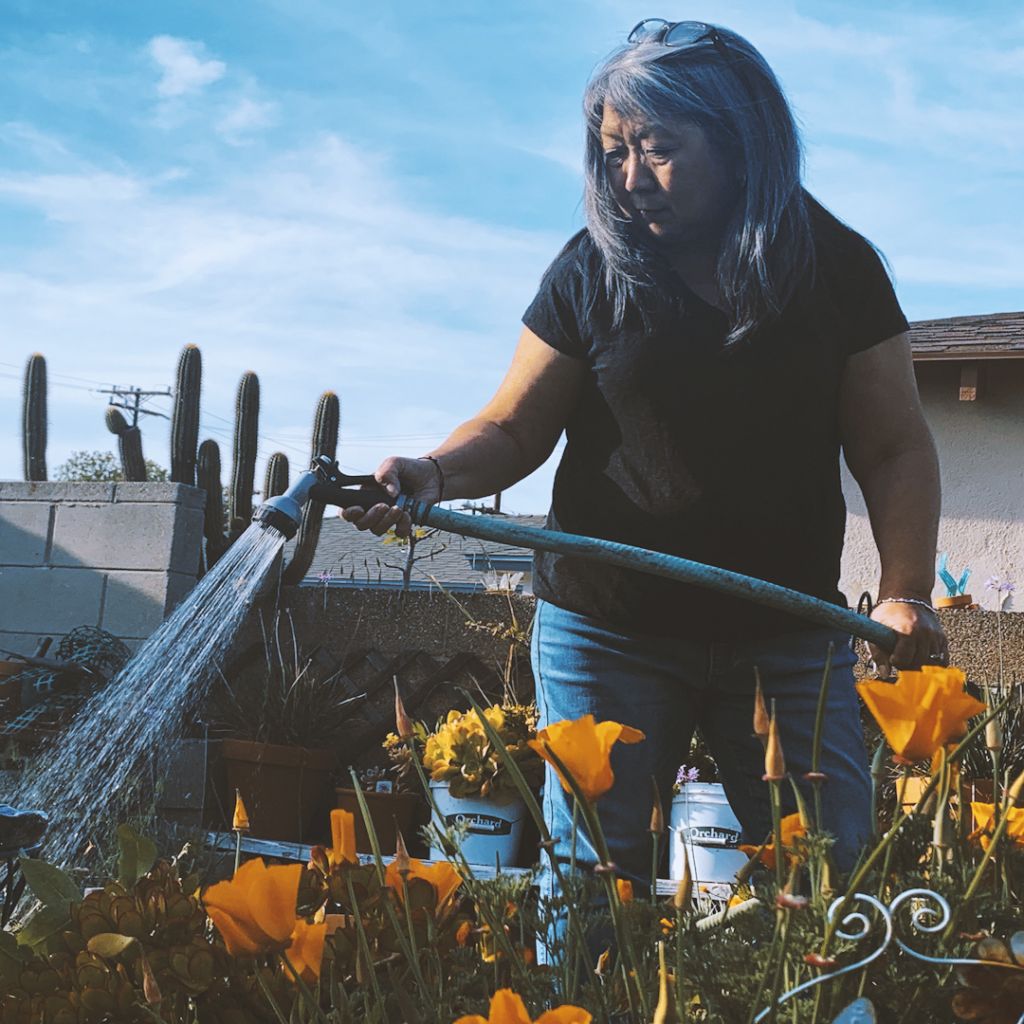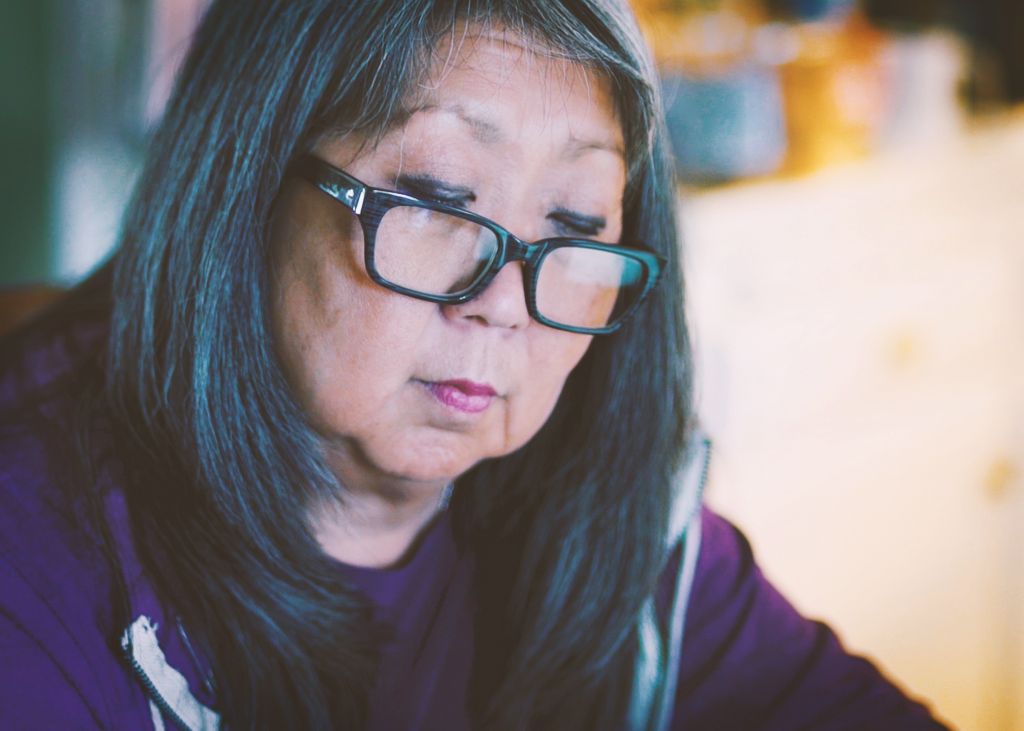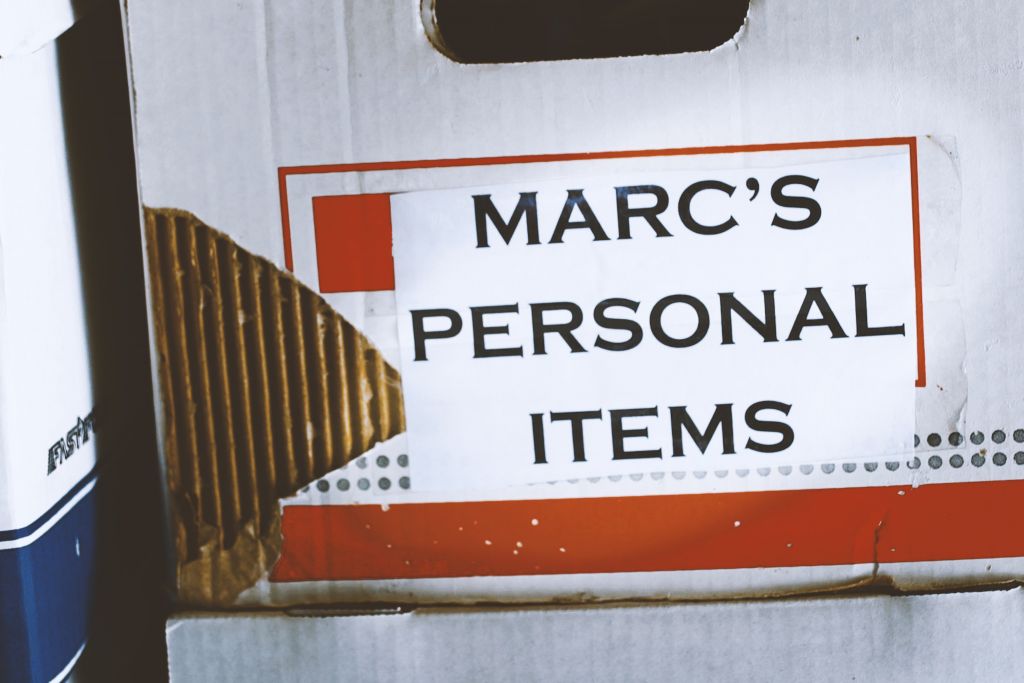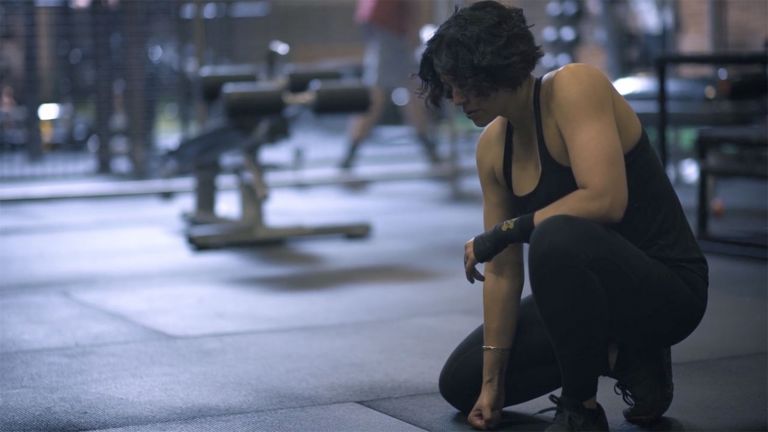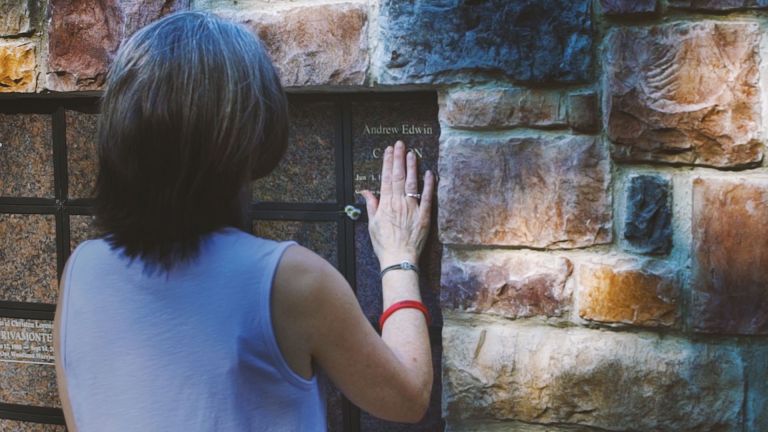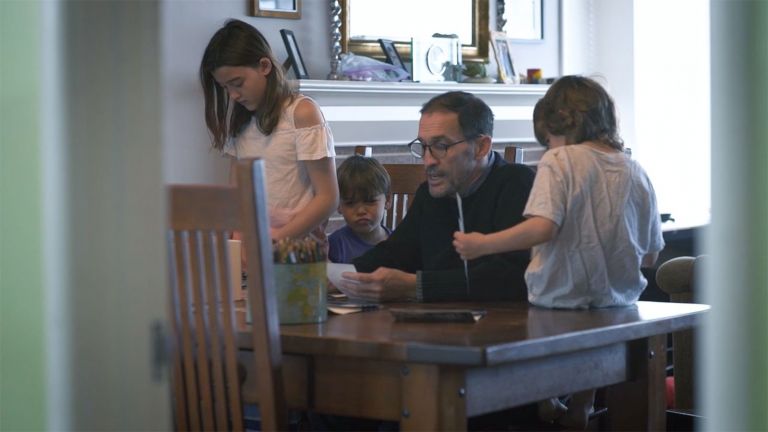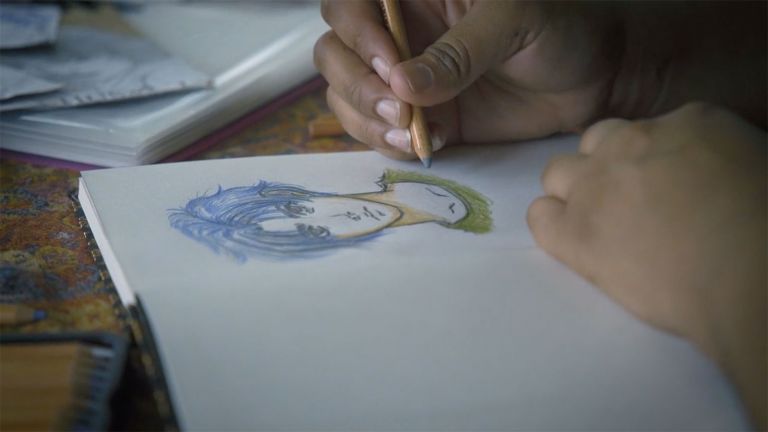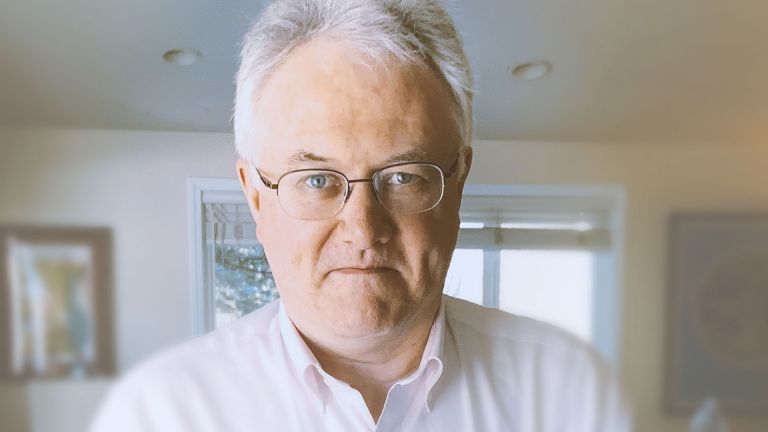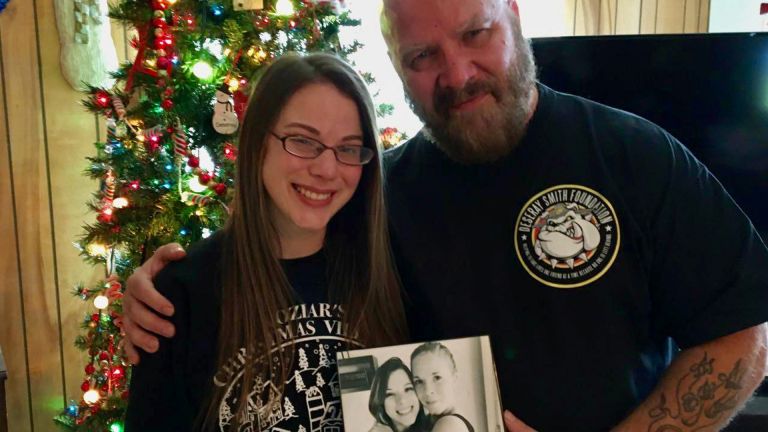Jayne Agena
Jayne’s husband, Marc, died of a stroke 2013. Her expectations about grief haven’t lined up with reality and she finds herself missing the little things about life with her spouse—waking up to a full pot of coffee and holding hands with the man she loves.
My husband.
We had a perfectly fine, normal Tuesday. And, I’m always grateful for that day. We went to bed, and then he never woke up.
Grief is hard. It’s probably the hardest thing I’ve ever done. You have to think of yourself as a different person. You have to imagine yourself differently, in ways that you would not have imagined yourself to be before. That’s really hard.
It’s hard on the people who knew you before because I think they keep expecting that person to show up. The person I was when Mark was alive is not the person I am now. of course people want you to be happy again. And they want you to be yourself. But, I’m never going to be that person again, not completely.
A lot of people just didn’t say anything, but you can feel this sort of expectation. That you should be moving on. You should do your grief differently. You kind of know that when their turn comes they’ll understand it better. But at the same time you don’t want them to have that turn.
There’s just certain things I’m not ready to do. When we moved here, Mark decided we’re moving all our storage stuff out to the garage. That’s now full of his stuff. You know, I thought maybe five years out I’d be able to just get in there and clean it all out and now it’s been six, and it’s still there.
How would you define grief? I think in its simplest terms, for sure, it’s love. It’s a different version of it. It’s the missing of it. It’s the missing of a person who mattered in so many different ways that you didn’t even know you could count.
You hear the things, you know, “Love is always, Love is forever,” but you don’t really know what that means. And people don’t know what it looks like. They think it ends, and it doesn’t. It’s just different.
Mark lost his mom one year. The following year we lost my mom, and then a year after that my dad died. And the year after that, Mark died. But the grieving was completely different The grieving is different for my parents, than for Mark. To- I mean it’s almost like a different animal. my mom got sick and, um, non-Hodgkin’s lymphoma, and dad just died Mom said, “I’ve lived a good life.” And it’s true. She died at 86, my Dad died at 92. So, um, it’s sad and there’s a loss. M- and it’s, uh, it’s, it has a depth to it. Um, but there’s sort of a, an acc- easy, it’s easier to accept, I guess. With Mark dying so suddenly , I just didn’t expect it to hit me so hard. I didn’t expect it to be so extreme.
It is hard to put a timeline on grief, and everyone is so individual. For me, to say that it started to ease, uh, would have to be years. Right? I mean, there’s a part that wants to say, “Never.” There’s another part of me that says, “Probably more recognizably in the last 2 years, maybe?” So three years out. But probably even more so the last year. I think the last year has been the most marked. I can tell I can handle more, if that makes sense. That I can take more things on, on my schedule, that I want to But, you know, just, there’s still stuff around the house that needs to be put away, maybe, and- and I just pay attention to how I feel about it, and if I’m not ready internally to, um ... I know people have gone through his ... You know, gone through their spouses clothes. And, it’s like, well that’s not going to happen any time soon. it took me awhile to move his towel off the rack in the bathroom. So, you know, it’s just ... It’s still being processed, I guess, is the best way to put it. But in my life, in terms of doing things, I think I’m more able to do things, probably in the last year than before.
Mark liked strong coffee, and he liked a lot of it. Um, so, we always had a coffee pot. It was great to get one of those newer coffee pots at that time where you could program it. You could have it ready to go . It was his coffee pot. He would be the one to load it he’d have it ready to go in the morning. the way he died, that coffee pot was ready to go. It was pre loaded. It was just, you just had to push the on button. I couldn’t do it because that meant once I did it, it would be gone. The coffee pot sat there probably for more than a year. Um, and I just bought myself a little Keurig single cup, and that’s what I still use And, I think it took. I don’t even know. I want to say two or three years before I decided the coffee pot can get put away. I don’t think I drank the coffee. (laughs)
By not talking about it, it makes it worse. By not saying Marc’s name, it makes it worse. Um, that it’s okay to ask yo- wha- so it’s, it’s okay to ask me about Marc, or to remember a story. Or, um, just say, “I thought of him the other day.” At one time, someone who I hadn’t seen in, in any a few years said... and we were at a concert that we usually go to, went to together. And he said, “Where’s your husband?” And I said, “Oh, you know, he, he died.” And he goes, “Oh!” Then he felt so awful. I said, “No, you don’t understand. That was really, it was really nice you remembered, that I was married one time, right?”
And another time, one of Marc’s friends works in the same district that I do, and I had to call him for something. And he would just say, “Oh, it’s so nice to, that you called. It’s, it’s nice. I was just thinking of Marc the other day.” It was like, “Ah, it’s just nice to hear someone say that.”
So, by asking, it really helps, And if someone asks or says something, that does make you cry is, is that a bad thing? Oh, look at me. I’m a mess. But it’s, it’s okay for people to ask me, and make me cry. Because, it’s always there. Other people might not realize it, but it’s always there.
